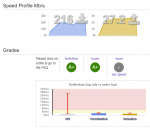Flow Cache Control Utility:
Proc FileSystem: /proc/fcache
::: Usage:
:::::: Flow Cache SW System :
fc status
fc enable
fc disable
fc flush
[ --hw ]
- Flush all flows matching any combination of:
[ --if <interface> ]
| [ --flow <flowid> ]
| [ <--mac | --dstmac | --srcmac> <macaddr> ]
fc resetstats
fc flwstats <cmd>
fc flwstats n <field> <value> [<field> <value> ]
- Create new query where <field> is one of the following:
srcv4, rxdstv4, dstv4, srcv6, dstv6, srcport, dstport,
srcipver, dstipver, proto, invid, outvid,
dstmac, srcmac, inrxdstmac(l2gre), inrxsrcmac(l2gre),
intxdstmac(l2gre), intxsrcmac(l2gre), srcphy, dstphy
fc flwstats g <id> - Get results for query <id>.
fc flwstats d <id> - Delete query <id>.
fc flwstats c <id> - Clear counters on query <id>.
fc flwstats p - Print out all active queries.
fc config
[ --defer <rate> ]
| [ --sw-defer <pkts> ]
| [ --low-pkt-rate <rate> ]
| [ --monitor <0|1> ]
| [ --accel-mode <0|1> ]
| [ --hw-accel <0|1> ]
| [ --tcp-ack-mflows <0|1> ]
| [ --timer <ms> ]
| [ --mcast <0|1|2|3> ]
| [ --mcast-learn <0|1|2> 0-disabled,1-enabled,2-enabled only for 1st flow ]
| [ --ipv6 <0|1> ]
| [ --4o6-frag <0|1> ]
| [ --gre <0|1> ]
| [ --l2tp <0|1> ]
fc dump [ --flow <flowid> ]

www.snbforums.com



